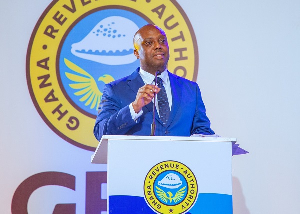Ghana, like many developing nations, faces a myriad of challenges as it strives for progress. Among these, environmental issues stand out as a pressing concern. Yet, despite the visible signs of environmental degradation, many Ghanaians seem to turn a blind eye. The lack of environmental awareness is glaring, and it’s high time we address this before it’s too late.
Walk down any street in Ghana, and you’ll see the evidence: plastic waste strewn across roads, gutters clogged with trash, and a general disregard for the health of our natural surroundings. This isn’t just an eyesore—it’s a threat to our health, our ecosystems, and our future. The root of the problem? A lack of education, inadequate waste management systems, and weak enforcement of environmental laws.
Let’s break it down with four key examples that highlight the severity of the issue.
1. The Waste Management Crisis
Since independence, Ghana has struggled to implement an effective waste management system. Unlike developed nations where waste disposal is systematic and regulated, here, it’s a free-for-all. Even in the heart of our cities, garbage is everywhere, posing serious health risks. While companies like Zoomlion Ghana Ltd. are making efforts to collect waste, their work is a drop in the ocean.
Take public transportation, for instance. It’s common to see passengers toss plastic bottles and food wrappers out of moving vehicles without a second thought. This careless behaviour reflects a broader societal issue: a lack of respect for our environment.
2. The Vanishing Trees
Ghana’s forests are disappearing at an alarming rate, and it’s not just due to natural causes. Agriculture, charcoal production, and housing developments are eating away at our forest cover, with little to no effort to replace what’s been lost.
I witnessed this firsthand in December 2024 when I visited my village. A once-lush riverine area had been stripped bare, leaving behind dry, barren land. While some level of environmental change is inevitable as a nation develops, the absence of a collective effort to replant trees is deeply concerning.
3. Bush Burning and Deforestation
Bush burning, often seen as a way to rejuvenate land for farming or grazing, is a double-edged sword. While it may benefit some plant species, it also destroys countless others, along with slow-moving animals and even farm produce.
Add to this the rampant cutting of trees for firewood, charcoal, and construction, and you have a recipe for disaster. Deforestation is leading to soil erosion, dried-up rivers, and worsening climate change. Even economically valuable trees are not spared, particularly in the Northern regions of Ghana.
4. The Galamsey Menace
Perhaps the most glaring example of our environmental apathy is the illegal small-scale mining activity known as galamsey. Illegal miners are ravaging our forest reserves and polluting our water bodies in their relentless pursuit of gold. The lack of regulation and enforcement has turned this into an environmental catastrophe.
What Needs to Be Done?
The time for change is now. Ghana cannot achieve sustainable development without proper management of its natural resources. Here’s what we need to do:
• Environmental Education: We must educate citizens on the three pillars of sustainability—people, economy, and environment—and how they are interconnected.
• Strict Enforcement: The District Assembly’s bylaws must be enforced to ensure compliance with environmental regulations.
• Community Involvement: Grassroots initiatives, such as tree-planting campaigns and clean-up exercises, should be encouraged and supported. The monthly Sanitation Days and the Tree for Life Initiative of the Mahama-Opoku-Agyemang-led government are commendable, and all should participate in them.
• The lack of environmental awareness among Ghanaians is a ticking time bomb. If we don’t act now, the consequences will be dire. Let’s wake up, take responsibility, and work together to protect our environment for future generations.
The change starts with you and me. Let’s make it happen under President Mahama's ‘Resetting Ghana agenda’ and beyond.
Opinions of Wednesday, 26 March 2025
Columnist: Dr John-Baptist Naah















